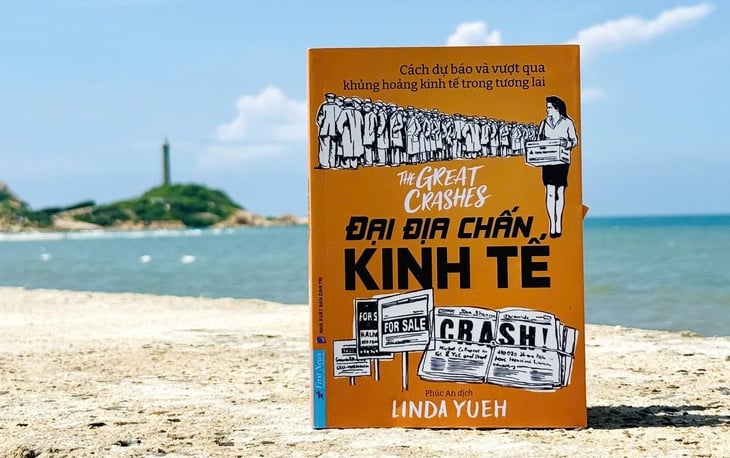
The book "The Great Economic Earthquake" - Photo: Dan Tri Publishing House
Each chapter of the book serves as a historical overview, helping us explore the causes, developments, and consequences of major economic collapses, thereby enabling us to better understand how to respond to crises.
The vivid chronicle is opened by author Linda Yueh with the Great Collapse of 1929 (also known as the Wall Street crash of 1929), as this was one of the most devastating financial crises of all time.
The collapse began in October 1929 with a sharp drop in prices on the New York Stock Exchange, one-third of American banks went bankrupt, and the US economy contracted at a shocking rate of 29%. One-quarter of Americans lost their life savings, millions became unemployed, and people fell into destitution.
And then there were many more crises, and most recently, the COVID-19 pandemic, which, although not originating in the financial markets, still caused a global economic shock as the whole world was forced to shut down for extended periods.
By depicting nearly a century of upheaval, the author does not simply recount events but helps us understand why these crises occurred and how they might repeat themselves.
From *The Great Economic Earthquake *, readers can draw many lessons not only in terms of macroeconomics but also in terms of management thinking, market confidence, and systemic issues during a crisis.
The book points out that both the 2008 global financial crisis and the 2020 COVID-19 crisis demonstrated the crucial role of central banks and governments in "rescuing" the economy through large-scale stimulus packages.
For a young economy, the important lesson is not to avoid crises, but to find ways to weather the storm. By strengthening the financial system, developing healthy capital markets, controlling debt risks, and increasing resilience, while these seismic events cannot be avoided, the damage can be mitigated.
Linda Yueh (born 1977) is a professor at the London Business School, a visiting professor at the IDEAS Institute of the London School of Economics and Political Science, and a visiting professor of economics at Peking University.
She has served as an advisor to the World Bank, the European Commission, the Asian Development Bank, the World Economic Forum in Davos, and numerous other organizations.
Source: https://tuoitre.vn/dai-dia-chan-kinh-te-20250715095320164.htm





























































































![OCOP during Tet season: [Article 4] Elevating local products](/_next/image?url=https%3A%2F%2Fvphoto.vietnam.vn%2Fthumb%2F402x226%2Fvietnam%2Fresource%2FIMAGE%2F2026%2F01%2F29%2F1769652810578_2935-z6982071462129_649e82db06fb2f2ea701388b1f5f5b0b-173322_176-185229-202804_457.jpeg&w=3840&q=75)




![OCOP during Tet season: [Part 3] Ultra-thin rice paper takes off.](/_next/image?url=https%3A%2F%2Fvphoto.vietnam.vn%2Fthumb%2F402x226%2Fvietnam%2Fresource%2FIMAGE%2F2026%2F01%2F28%2F1769562783429_004-194121_651-081010.jpeg&w=3840&q=75)

![OCOP during Tet season: [Part 2] Hoa Thanh incense village glows red.](/_next/image?url=https%3A%2F%2Fvphoto.vietnam.vn%2Fthumb%2F402x226%2Fvietnam%2Fresource%2FIMAGE%2F2026%2F01%2F27%2F1769480573807_505139049_683408031333867_2820052735775418136_n-180643_808-092229.jpeg&w=3840&q=75)





Comment (0)